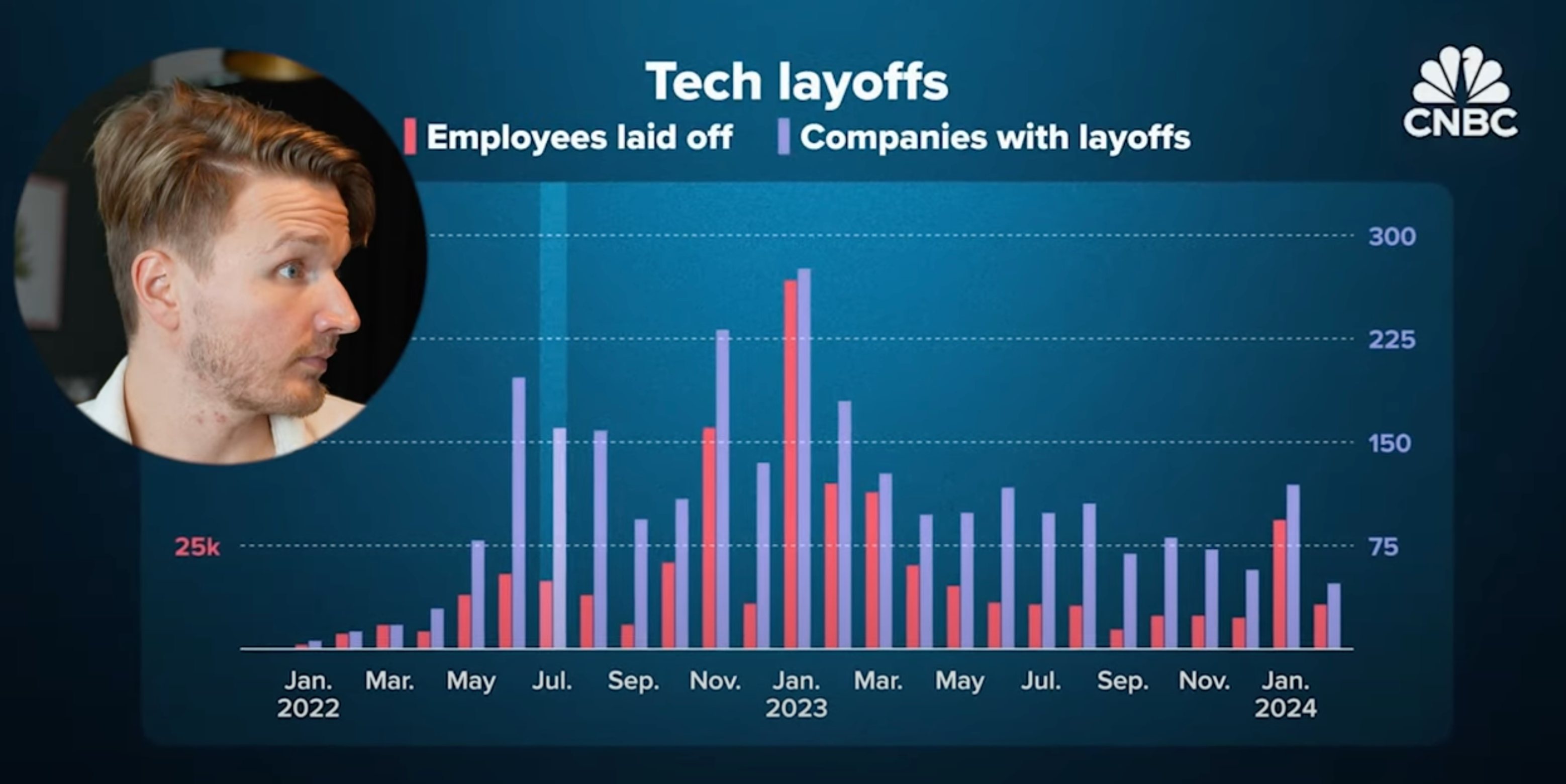Pros and cons of remote work
The dream
I’ve had my fun as a ski bum who juggled many menial jobs just to get by for a decade.
So when I was visiting NYC in April 2022 and caught up with an old roommate of mine from college, he, along with everybody else, heard my frustrations and responded with “Just learn to code.”

Seemed to make sense: remote work was very quickly normalized, learning resources were plentiful, and my dad had been a software architect his whole career.
I launched headlong into programming—I bought a subscription to Starlink so I could code with my cats in my trailer or in my hammock up on the slopes of Chief Joseph Mountain. I switched my schedule around at the pizza shop where I was slinging salads so that I could attend classes in JavaScript and prepare for a bootcamp later in the fall or winter. Surprisingly I passed my entrance exam on the first go.

It was all going according to plan.
The reality
Tech moves fast. ChatGPT was introduced in November 2022, days before my bootcamp started in December. Tech layoffs started to increase earlier in the year with attention-grabbing headlines appearing week after week.
January 2023 was horrible. February was terrible. March was bad. And that’s when I hit the job market. You could say it was not good timing.
The sudden change was shocking. “Just learn to code” had been a slam-dunk decision for decades and only made more sense during the pandemic. But “AI will take your job” and “No one is hiring” became the new norm overnight. And it has stayed that way.
Making adjustments
After countless applications that were going nowhere, and increasingly feeling listless, I knew I had to make a change.
The worst part about starting out remote, without a doubt, has been the lack of a network.
As a newer developer, I had very few connections and not a lot of direction. Sure, webdev. But what is that? I learned that being self-motivated and coding all-day by myself super sucked. Not being plugged into a larger team was draining and confusing.
That’s when I started reaching out to smaller companies or researching projects that were interesting to me.
I got a part-time gig writing videos about Rust. Now that I had an angle, things became much easier. Cold calls had a point—there was inertia behind them and people started being receptive to talking.
Options
Now I’m at an awkward place where I know a little bit more about the landscape that’s out there and have some projects under my belt, but I’m still struggling to find a full-time role and grappling with if this whole career change was actually a huge mistake.
Do I want to be in devOps, technical writing, embedded systems, or network architecture? Is there room for me in any of these domains? I really don’t know.
I’m also learning that while I love where I live and the life I’ve built, maybe going all-in on a career and moving to Seattle could pay off in big ways.
In-person work still has its benefits. It can focus you, encourage you, and engage you in ways that remote work isn’t able to do. I kinda yearn for a collegiate atmosphere.
Plus, being remote means that you are simultaneously the smartest and dumbest person in the room. Learning velocity is insanely slow because there just isn’t a ton of interaction or tangeable pressure on a daily basis.
And yet
Still, I’m happy that I’m able to sit at home with a cat in my lap and a dog at my feet while scheduling talks with people who do know way more than me. It’s not all that bad.


